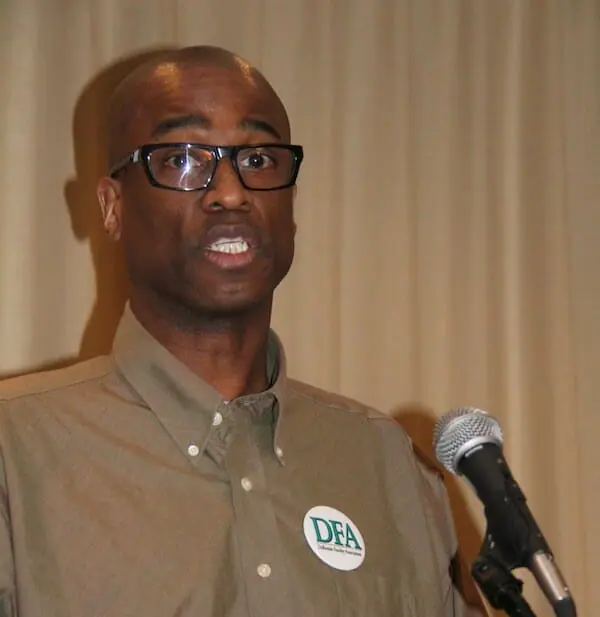
Students need to start taking a role in Dalhousie’s strike negotiations, says Anthony Stewart, president of the Dalhousie Faculty Association (DFA).
Stewart took what he calls the “extraordinary” step of calling a press conference on Feb. 10, in the middle of conciliations, in order to pressure the university’s negotiating team to mandate that they can speak about monetary issues. Stewart says the best thing students can do to prepare for a strike is prevent it from happening.
“It depends on if (students) want to prepare for a strike or if they want to contribute to there not being a strike,” says Stewart. “My suggestion is: get the students to start emailing the administration, and asking questions of the administration.
“The Board of Governors doesn’t want to talk to us. Students should start asking them why, because we don’t know.”
The past two conciliation meetings have been difficult, says Stewart, because the administration’s negotiating team does not have a mandate from the Board of Governors to discuss the main issues of pensions and salary.
“On Feb. 1, our team tabled a letter of understanding on pensions. And what did we get back? Nothing. No response. Nothing. Just, ‘We don’t have a mandate from the Board of Governors to talk about that’,” says Stewart.
“We know we will have to pay more into our pension. We know what a $50-million cut would do to the operating budget of the university, what it would do to education and what it would do to research at Dalhousie.”
Stewart says that in the past few weeks, faculty have been “regaled by the university in terms of numbers and trends and what’s happening in Greece.” But he says the university pension plan is determined principally by two things: the balance of the liabilities to assets, and the long-term interest rates. “The two things our governance structure does not control.”
Thus far, only non-monetary issues such as child-care and maternity leave have been discussed. Stewart says the DFA took 70 per cent of the non-monetary issues off the table in an effort to make concessions and still no agreement has been reached.
An update on Dal administration’s negotiations blog, though, says they are “encouraged” by the progress made thus far and that it was understood from the beginning that pension talks would only come after non-monetary issues were resolved.
“The Board has been willing to discuss pension governance at any point in this process,” reads the blog. “The DFA has maintained from the beginning that pension governance is properly included with monetary items.”
The DFA has taken a different understanding of the Board’s unwillingness to discuss pensions.
“We did not hear the conciliator say that non-monetary issues had to be resolved first,” says Stewart.
“For some reason they do not want to conclude bargaining. And their insistence about not talking about money or pensions until the non-monetary issues have been concluded really is a red herring.”
Stewart says they are calling a strike vote in order to let the board know how important it is to start bargaining.
“We are the ones in the libraries; we are the ones in the laboratories; we are the ones in the counseling centers—not the administrators,” he says. “We know that students do not want a strike either and we know that the parents of the students do not want a strike. The only party that ever really comes out of a strike unscathed in this case is actually the administrators and the Board of Governors.”
The DFA posted an open letter to students here.
With files from Katrina Pyne, News Editor.

Recent Comments